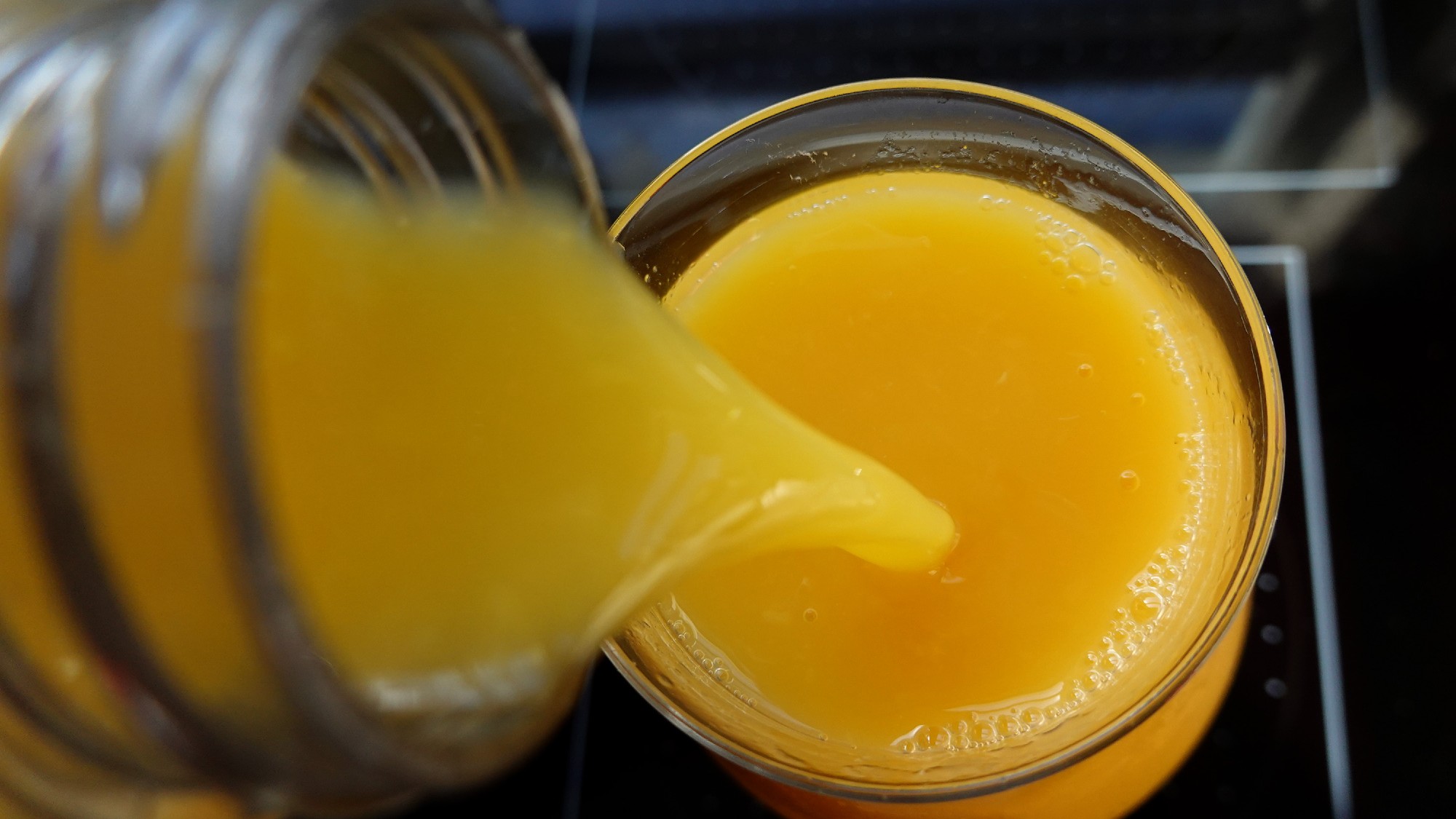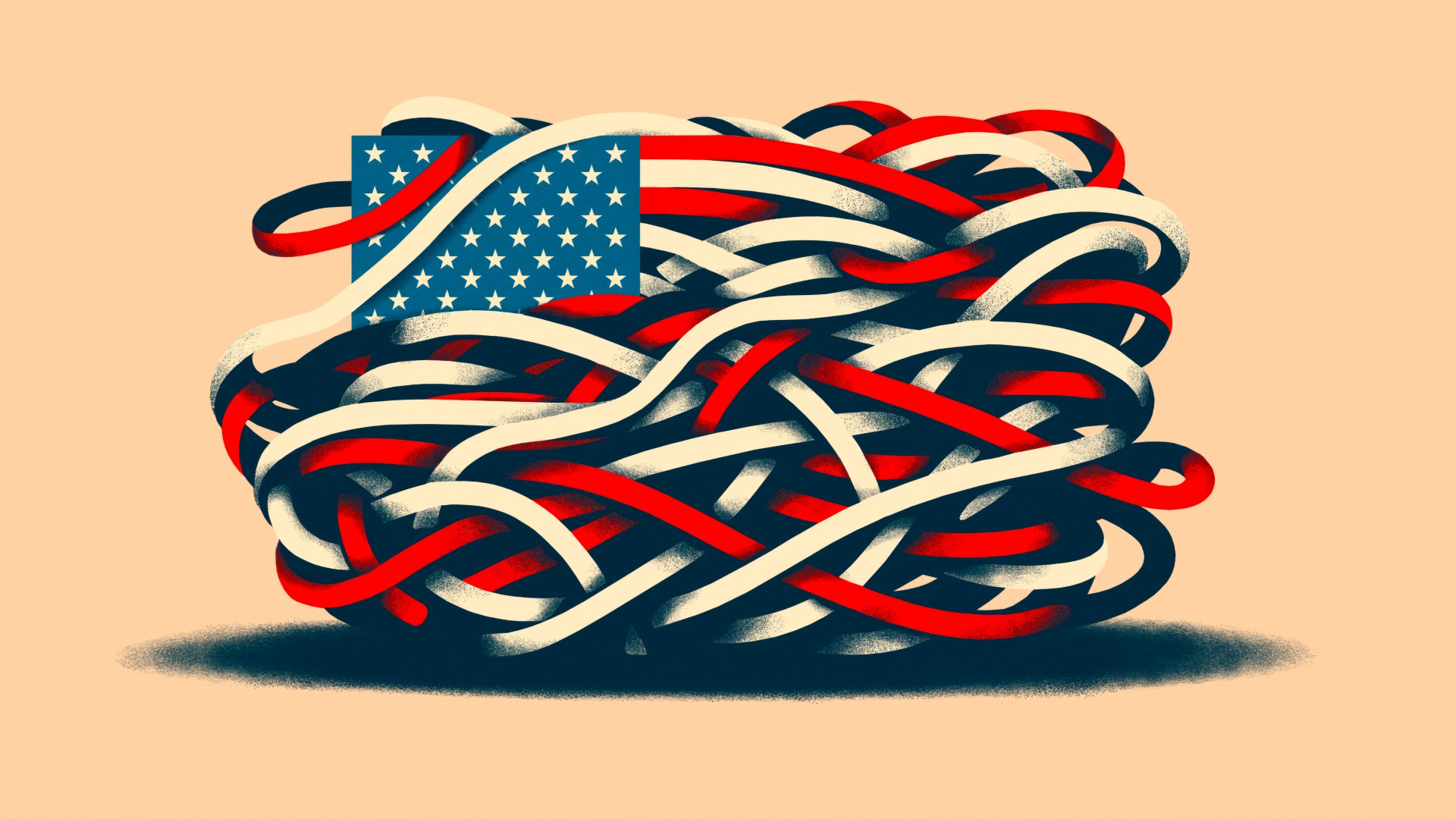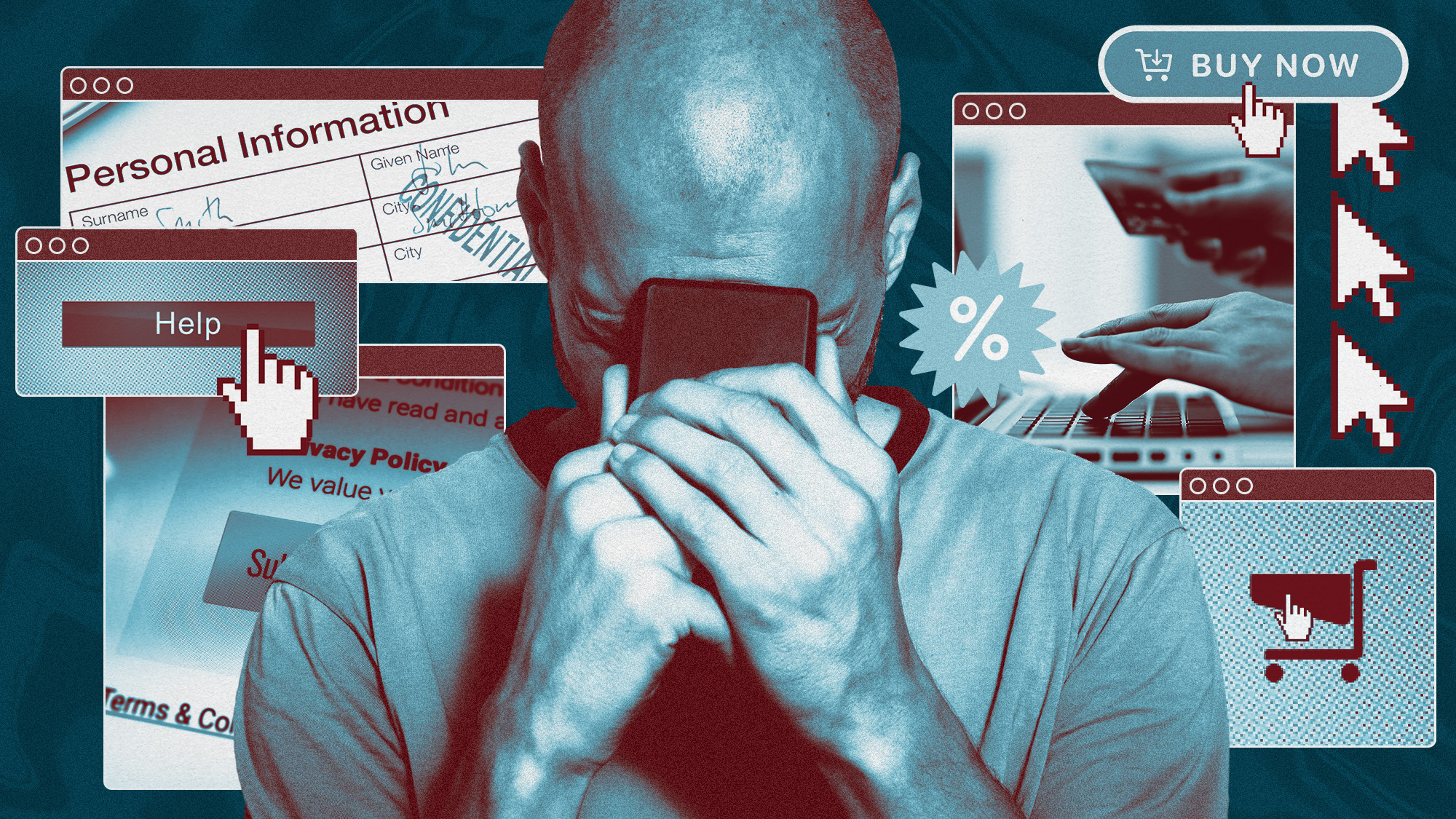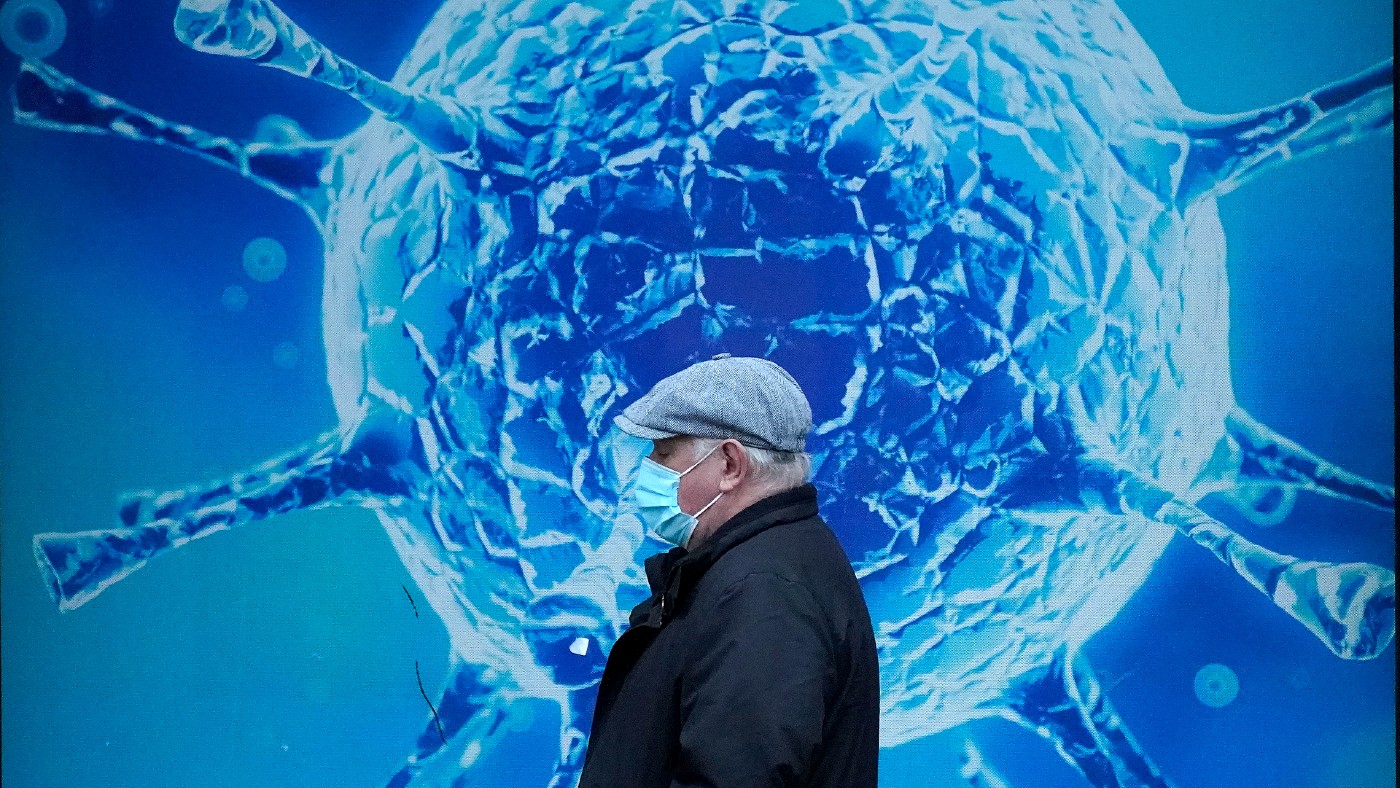Microstress: what is it and how can you manage it?
New book explores the devastating effect of minor strains that add up and overwhelm

A free daily email with the biggest news stories of the day – and the best features from TheWeek.com
You are now subscribed
Your newsletter sign-up was successful
People are usually adept at spotting the major causes of stress throughout their lives – whether bereavement, job loss, or shocks like Covid-19.
The same cannot be said for the relatively minor hassles and problems in our lives that we may just ignore but, over time, build up until we become completely overwhelmed.
Microstress is “hard to spot because it is baked into our daily lives”, said Rob Cross and Karen Dillon in The Wall Street Journal (WSJ). The pair believe this phenomenon, the subject of a forthcoming book they have co-authored, The Microstress Effect, can take its toll on people and lead them to feel burnt out and purposeless.
The Week
Escape your echo chamber. Get the facts behind the news, plus analysis from multiple perspectives.

Sign up for The Week's Free Newsletters
From our morning news briefing to a weekly Good News Newsletter, get the best of The Week delivered directly to your inbox.
From our morning news briefing to a weekly Good News Newsletter, get the best of The Week delivered directly to your inbox.
What is microstress?
While stress is “big, visible and obvious” and “virtually everyone can recognise” it, microstress is caused by moments we register as “just another bump in the road”, the authors wrote in the Harvard Business Review (HBR).
Examples include a disagreement in a meeting that remains unresolved, shifting expectations from bosses at work, or even hearing about a family member forgetting to take their medicine. These “brief, frequent moments of everyday tension that accumulate and impede us”, the pair wrote in the WSJ, are unlike the major events you might expect to cause anxiety.
Because microstress is so “fleeting”, the original sources might be forgotten, but they “still take a significant toll” on the body and mind, according to Joel Salinas, a behavioural neurologist at New York University’s Grossman School of Medicine. To illustrate this, even minor social stresses during a meal can disrupt the body’s metabolism, said Axios, with a study finding it’s equivalent to “adding 104 calories to that meal”.
What impact does it have on people?
Cross and Dillon coined the term and “uncovered the invisible toll” after interviewing 300 “high performers” working across a number of companies, they said in WSJ. They were initially hoping to understand how these people build and sustain networks, but realised the individuals were “suffering from a constant pulse of difficulties” few of them knew about.
A free daily email with the biggest news stories of the day – and the best features from TheWeek.com
Like stress as we know it, microstresses can increase our blood pressure and heart rate, or trigger hormonal or metabolic changes, they said. The brain can’t distinguish between regular stress and microstress, so “your body is still reacting to microstress even if you’re emotionally unbothered”, wrote Orianna Rosa Royle for Fortune.
These moments throughout your day might be hard to spot individually, but “cumulatively they pack an enormous punch”, the authors said in the HBR.
They liken the consequences to a ripple effect, with seemingly innocuous moments creating “secondary and sometimes tertiary consequences” that can last potentially days. They can even “trigger microstress in others” to make matters worse. Indeed, microstress is usually brought on by “the people we are closest to” – with marriage a prime example.
Ultimately, microstress can “drain your capacity to get things done” as well as “deplete your emotional reserves”. In extreme cases, it can “challenge your identity”, according to the authors, and leave you with the discomfort you’re “not the person you really want to be”. This, in turn, “can chip away at your motivation and sense of purpose”.
How can we manage microstress?
In their study, Cross and Dillon found a subset of their interview subjects “were much better at coping” with microstress. These “Ten Percenters” were better at removing themselves from stress-inducing situations, and were also “thoughtful about not creating the kinds of conditions that cause microstress for others”, they wrote in WSJ. Finally, these individuals coped by “nurturing connections with a variety of social groups”.
There are practical steps people can take to combat the danger of microstresses, too, including meditating to “clear your mind and do away with stresses”, said Axios. People can also diversify their lives – those whose lives are “filled with family, friends and hobbies” are less affected by work-related microstresses.
Learning how to say no to small requests, as well as “managing technology” and how it interrupts you, are among other practical steps Cross and Dillon recommended.
Finally, some of the “happiest people” in their study “were able to put some of the microstresses in their lives in perspective”. By contrast, those who “allowed their lives to become too unidimensional often swam in a sea of microstresses that they helped create”.
Keumars Afifi-Sabet is a freelance writer at The Week Digital, and is the technology editor on Live Science, another Future Publishing brand. He was previously features editor with ITPro, where he commissioned and published in-depth articles around a variety of areas including AI, cloud computing and cybersecurity. As a writer, he specialises in technology and current affairs. In addition to The Week Digital, he contributes to Computeractive and TechRadar, among other publications.
-
 Why social media is obsessed with cortisol
Why social media is obsessed with cortisolIn The Spotlight Wellness trend is the latest response to an increasingly maligned hormone
-
 Mental health: a case of overdiagnosis?
Mental health: a case of overdiagnosis?Talking Point Issues at 'the milder end of the spectrum' may be getting wrongly pathologised
-
 4 tips for coping with election anxiety and stress
4 tips for coping with election anxiety and stressThe Week Recommends Election news is hard to circumvent. But navigating the politically charged season does not have to be stressful.
-
 4 expert tips for avoiding parental burnout
4 expert tips for avoiding parental burnoutThe Week Recommends Today's parents are under an alarming amount of stress. The key is to start making small changes.
-
 How helpful are mental health apps?
How helpful are mental health apps?Under the radar Market is booming, offering accessibility and affordability, but many apps are unregulated and share sensitive user data
-
 Workplace wellness programmes: a waste of time and money?
Workplace wellness programmes: a waste of time and money?Talking Point Global corporate industry is booming but positive impact on staff well-being is debatable
-
 Why is a bed-bug epidemic sweeping across the UK?
Why is a bed-bug epidemic sweeping across the UK?feature Cost-of-living crisis and post-Covid travel blamed for 65% year-on-year increase
-
 The new Covid variant Eris behind a rise in cases this summer
The new Covid variant Eris behind a rise in cases this summerfeature Concerns over ’flying blind’ as routine testing is no longer freely available and less data is being collected


